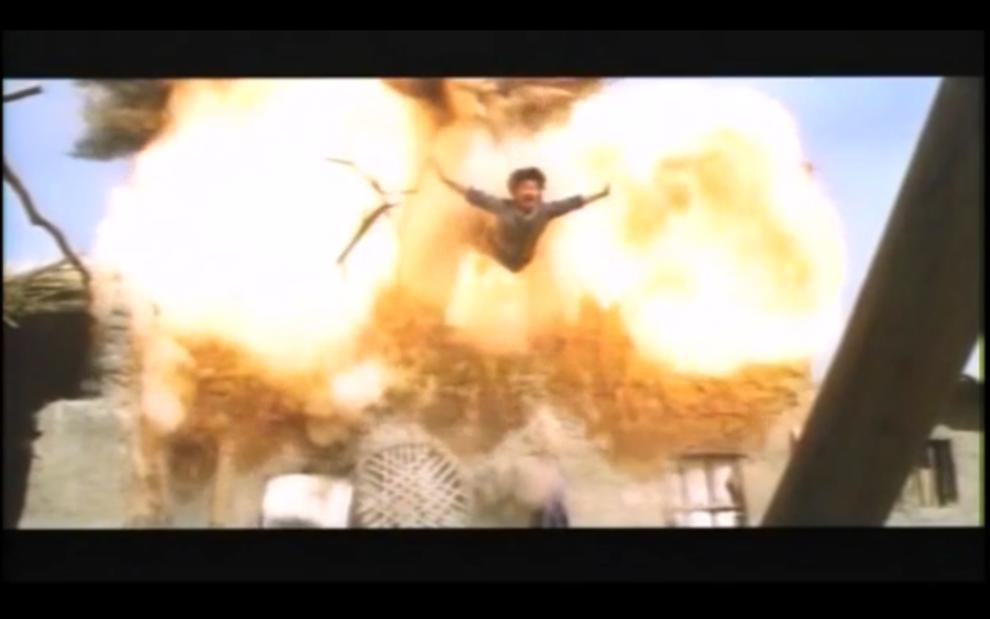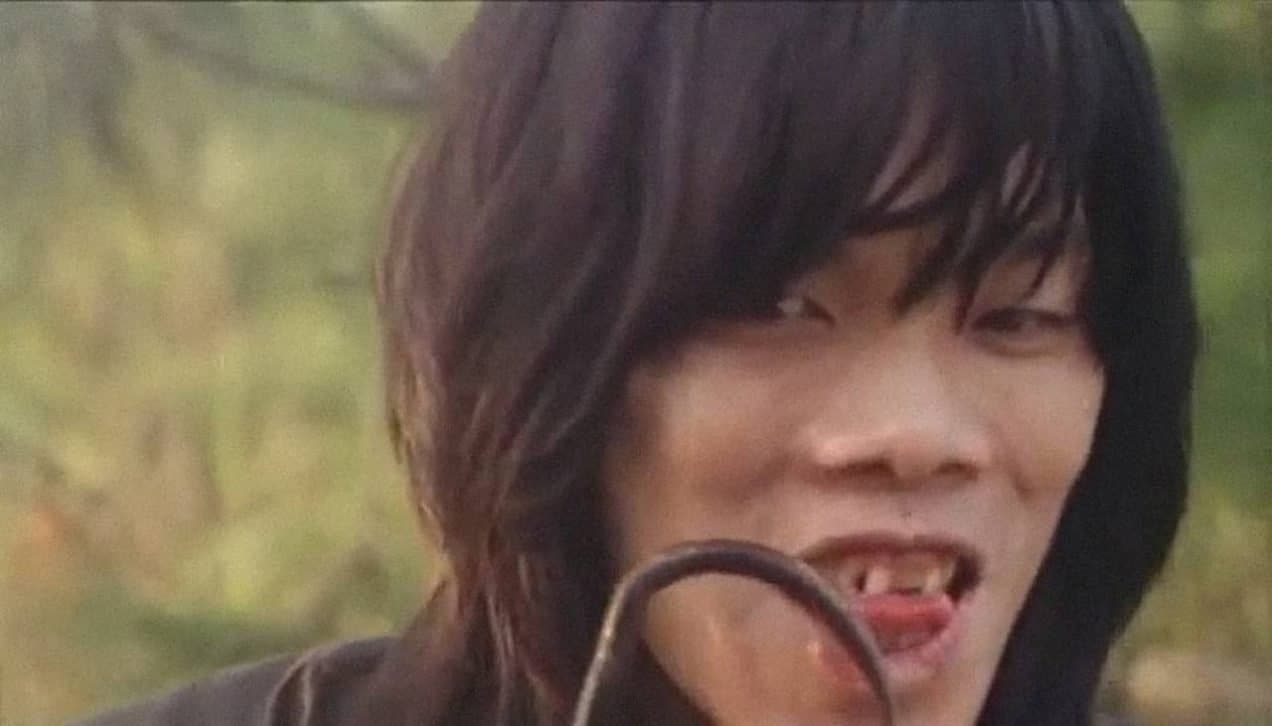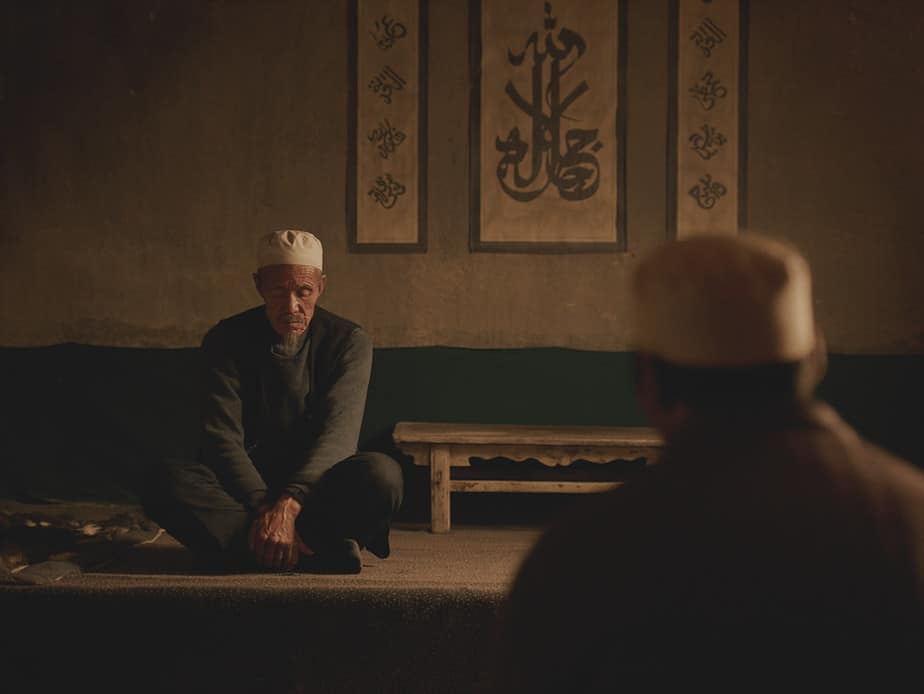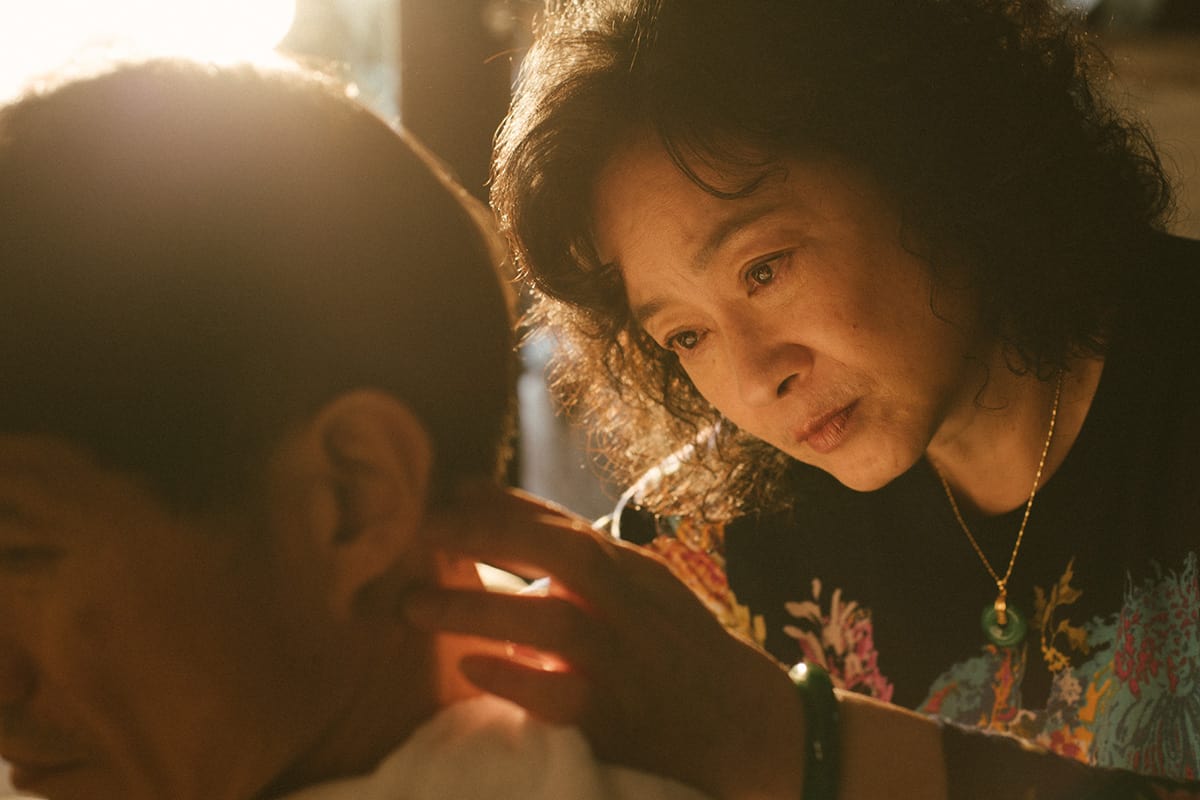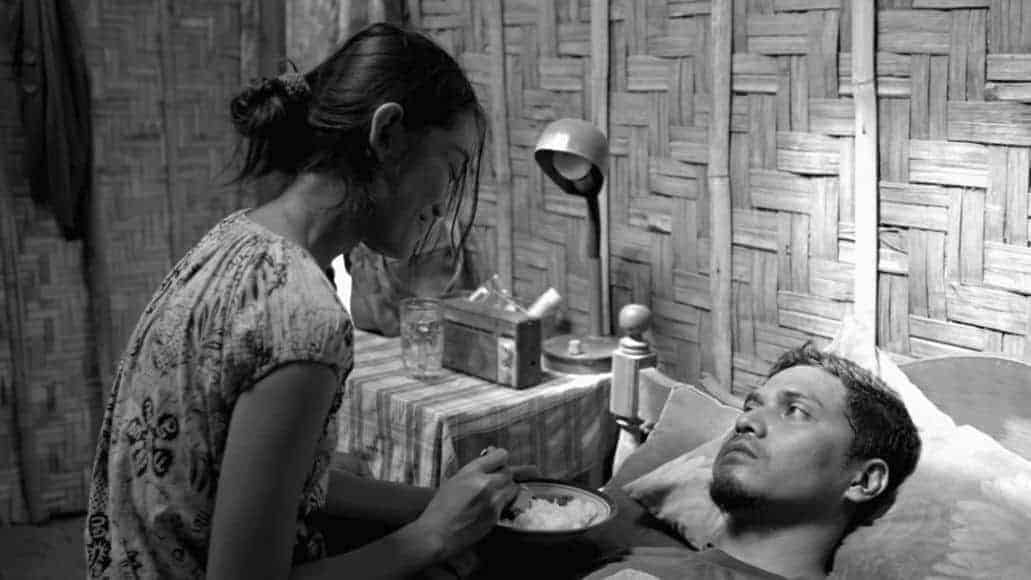You know those moments when, either purely by accident or based on a singular person's word of mouth, you stumble across a film that ends up blowing your mind? A film that you are sure is a hidden gem and makes you wonder why it is not spoken of by a larger audience in the same breath as some of the classics of its genre? This is exactly how Tsui Siu-ming's “Mirage” is going to make you feel like.
Tong is a photographer and adventurer who often takes on missions to accompany caravans through China's famed Silk Route, where the fear of bandits always lurks. On one such mission, the caravan is attacked by bandits but with Tong's fighting abilities and the caravan's firepower, they are able to thwart them. Soon after however, a mysterious image of a walled village and a beautiful woman fills the sky. After completing his mission, Tong still can't get the image and the woman out of his mind and decides to go on a quest to look for ger. Joining him on his journey is best friend Mao, who also manages to get tribal native Annette to join them as a guide as they head to the farthest reaches of Inner Mongolia to find out the identity of the mysterious woman.
Think of a swashbuckling adventure in the vein of Jackie Chan's “Armour of God” or the Indiana Jones films, and you're halfway there with “Mirage”. The story itself isn't particularly fresh and takes a long route to its destination. The conclusion too may seem unsatisfactory to some, the melodrama too heavy-handed at times and the animal cruelty in a couple instances might be a dealbreaker for some, but for the most part, the story is second fiddle here. The real USP of this feature lies in its action sequences and stuntwork.
The project, in fact a co-production with a Mainland production company, very much feels like the Mainland's attempt to encapsulate and make for itself what Hong Kong was doing so very well in the 80s. The use of Mandarin throughout also gives away these motives. However, what director Tsui Siu-ming has achieved in his feature with the stunts is nothing short of extraordinary. The stunts not only give competition to some of the best ever committed to screen, but even manage to top many.
To say that the stunts are death-defying would be an understatement, a man landing his motorcycle and himself straight into an explosion and a climactic sequence where a man sets himself on fire and gets onto a motorcycle are just two sequences of many that beggar belief. Yet another scene of a man jumping out of a car literally as it goes flying over a cliff is too awesome for words and needs to be seen to fully grasp the gravity of. The fact that most of these stunts are performed by lead actor Yu Rongguang and director Tsui Siu-ming himself only add to their impressiveness. While the acting performances may not be ones to write home about, the effort put into the action and stunts by the actors is most impressive.
Tsui proves to be a deft hand at handling the action sequences, of which there are many. A terrific sword-fighting sequence, which goes all around a walled village, even up two thin poles, is virtuoso. The all-out attack near the end is very well executed as well. The production clearly had a lot of money riding on it and Tsui gets the most use out of it, as seen by the frequent and excessive use of explosions as well as the scenes of hundreds of horseback riders going into battle and even in the lavishly constructed sets and the far out shooting locations in Inner Mongloia. Li Yu-tang's cinematography is most impressive in these shots of the mountainous or desert locations.
All of these elements combine to create an unforgettable feature with some of the best stunts ever committed to celluloid. The fact that this is mostly unknown, even to some hardcore Hong Kong cinema, is almost criminal. One can only hope that someone like Eureka Entertainment, Arrow Video or 88 Films would pick this gem up, clean it up and bring it out of obscurity for a much wider audience and newer generations to admire, appreciate and love. That is, if they can get those scenes of animal cruelty through the censors.


